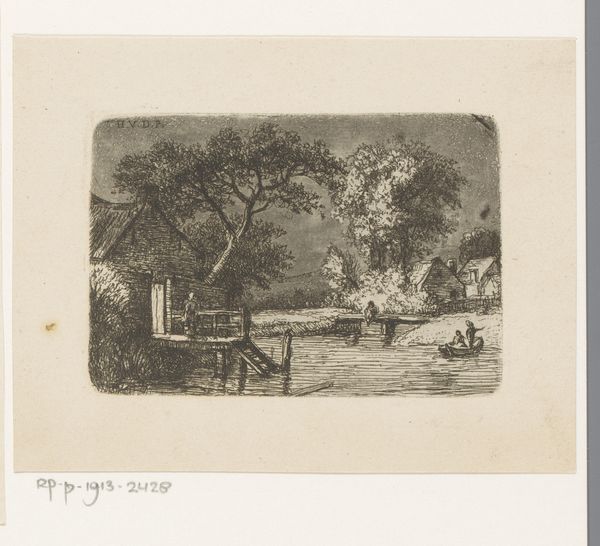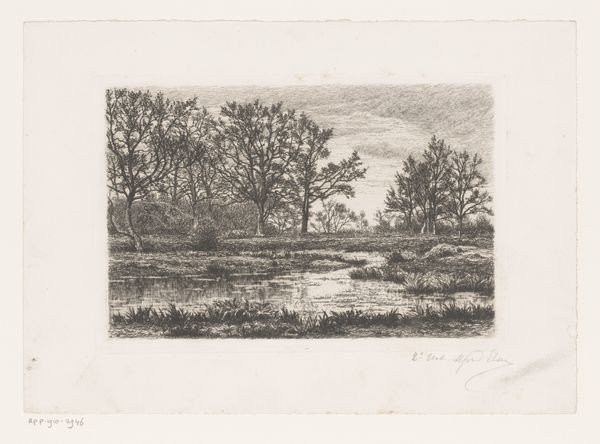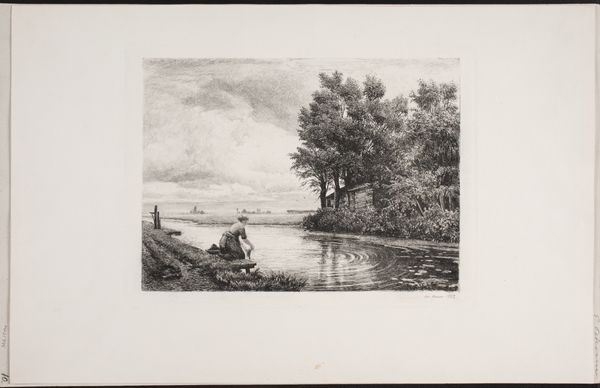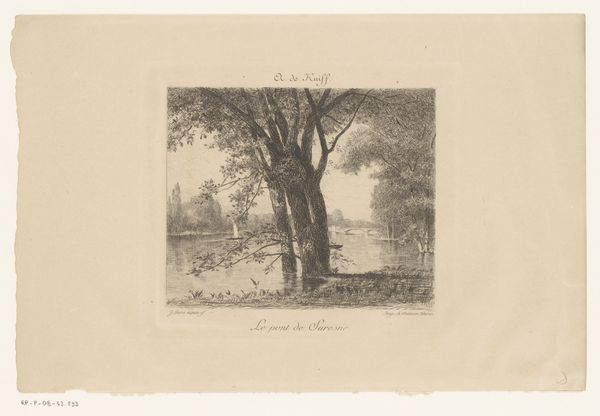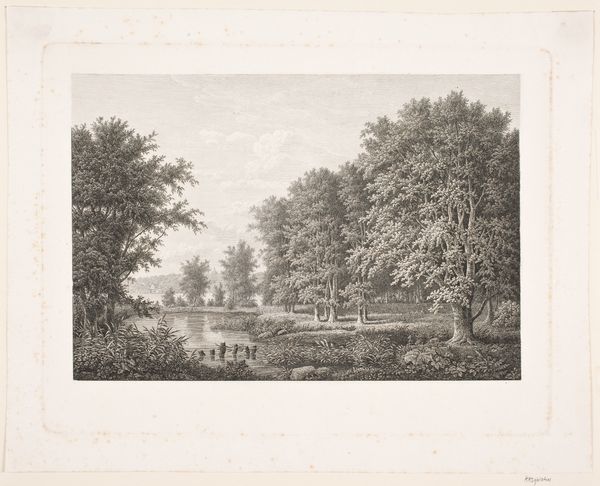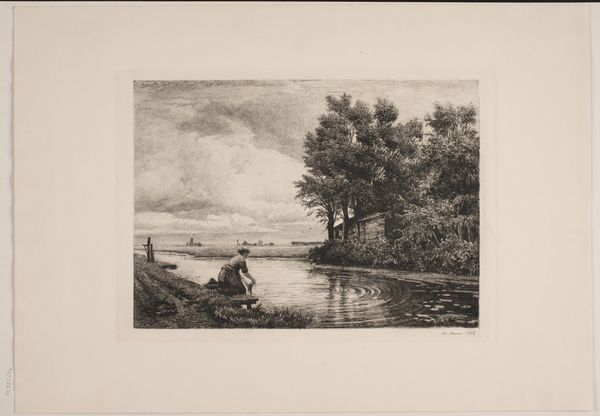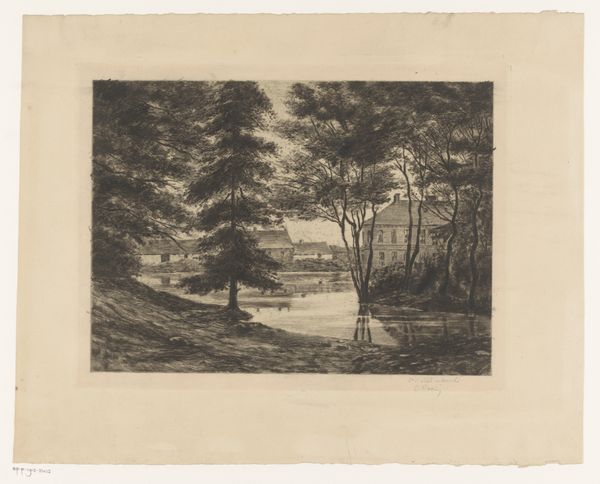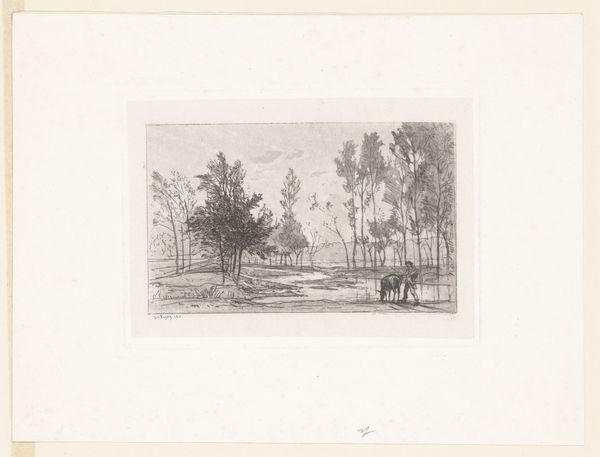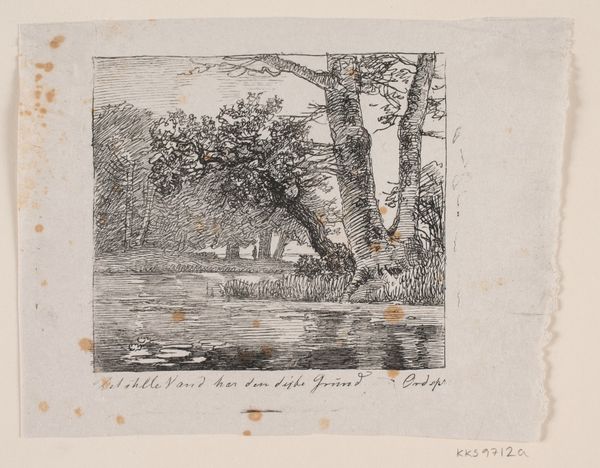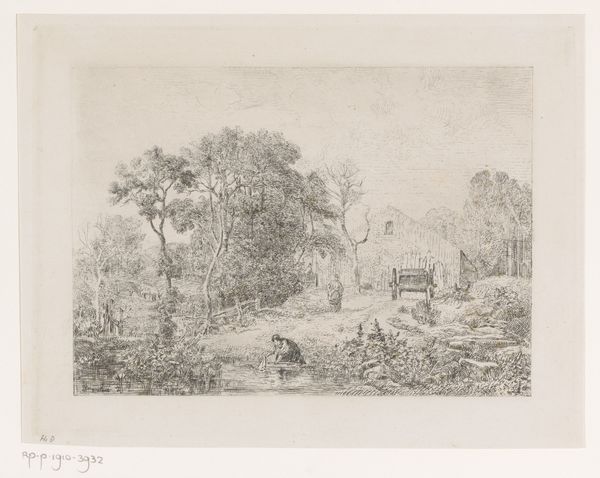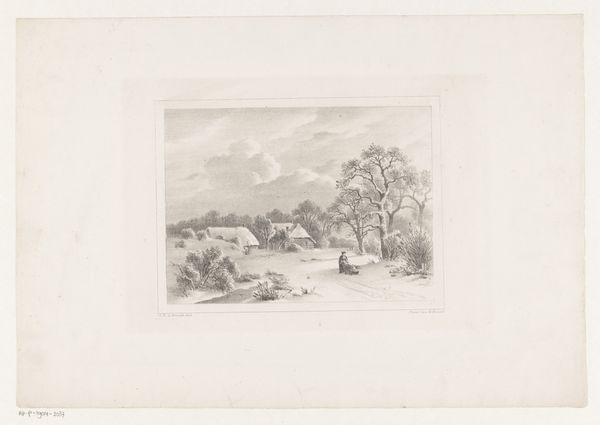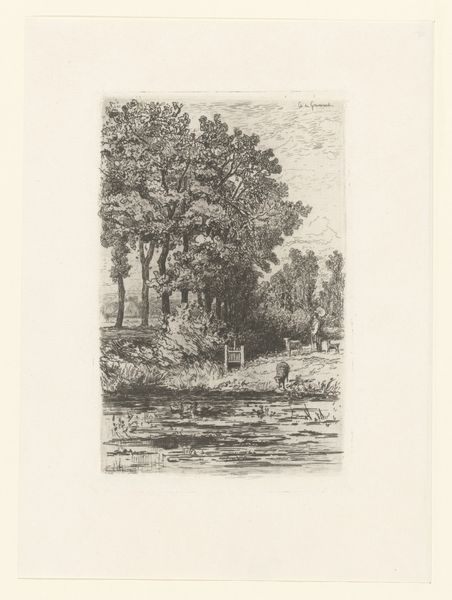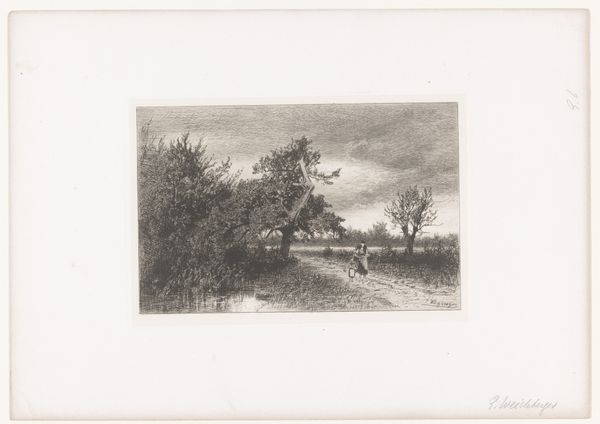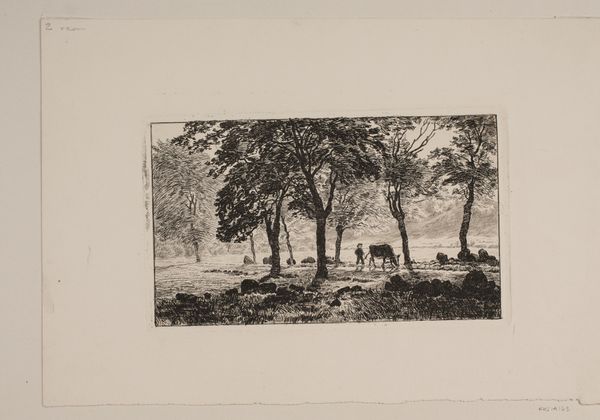
drawing, print, engraving
#
pencil drawn
#
drawing
# print
#
landscape
#
pencil drawing
#
engraving
#
realism
Dimensions: 96 mm (height) x 122 mm (width) (billedmaal)
This illustration of a poem by Chr. Richardt was made by F. Hendriksen using a printmaking technique. Look closely, and you'll see that it is composed of thousands of tiny lines. The effect is a remarkable amount of detail. Notice how the artist describes the ducks' downy feathers, or the way the light shimmers on the surface of the water. To achieve this level of precision, Hendriksen would have used a tool called a burin to directly incise these lines into a metal plate. Ink would then be applied to the plate, and then wiped away, remaining only in the engraved lines. Finally, paper would be pressed against the plate, transferring the image. This was a labor-intensive process, requiring great skill. Printmaking in the 19th century was caught between a purely manual practice, and nascent industrialization. Prints could be exactly reproduced at scale. The resulting images served multiple purposes: artistic expression, certainly, but also information, communication, and political persuasion.
Comments
No comments
Be the first to comment and join the conversation on the ultimate creative platform.
